HIBIKE! EUPHONIUM 3
STATUS
COMPLETE
EPISODES
13
RELEASE
June 30, 2024
LENGTH
25 min
DESCRIPTION
The third season of Hibike! Euphonium.
Kumiko's third year finally begins! With the concert band at Kitauji High School over 90 members, Kumiko is now the president and does her best with her final high school club activities to try to win her long-desired gold at nationals.
(Source: Crunchyroll, edited)
CAST

Kumiko Oumae

Tomoyo Kurosawa

Reina Kousaka
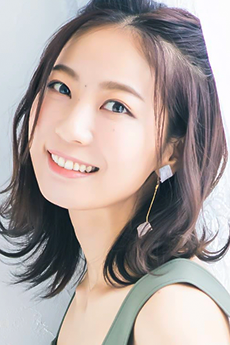
Chika Anzai

Hazuki Katou
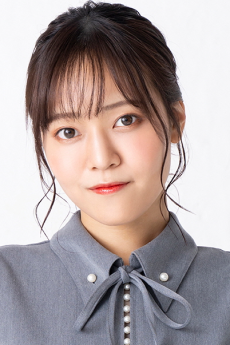
Ayaka Asai

Sapphire Kawashima

Moe Toyota

Mayu Kuroe
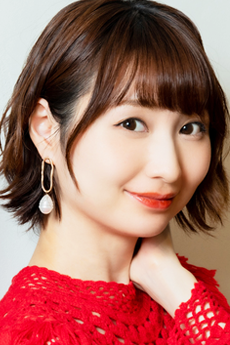
Haruka Tomatsu

Asuka Tanaka
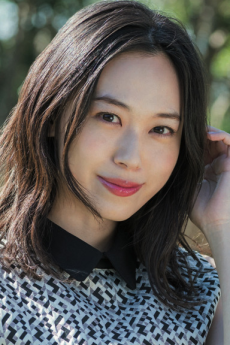
Minako Kotobuki

Mizore Yoroizuka

Atsumi Tanezaki

Natsuki Nakagawa

Konomi Fujimura

Nozomi Kasaki
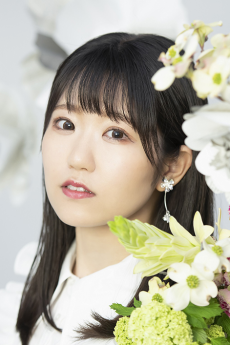
Nao Touyama

Kanade Hisaishi
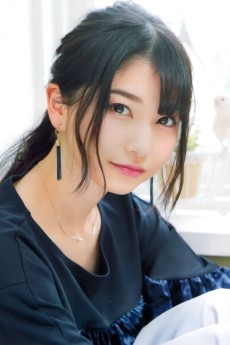
Sora Amamiya

Yuuko Yoshikawa
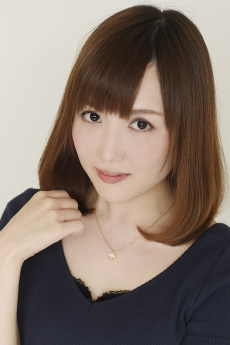
Yuri Yamaoka
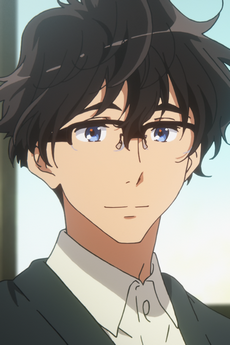
Noboru Taki

Takahiro Sakurai

Ririka Kenzaki
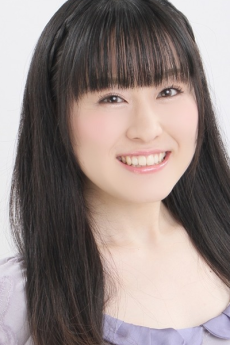
Shiori Sugiura

Kaori Nakaseko
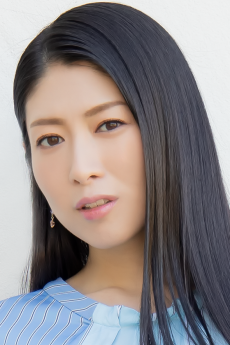
Minori Chihara
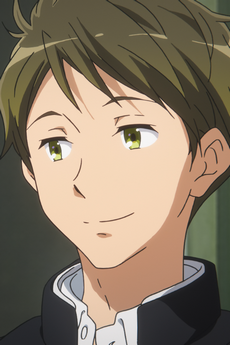
Shuuichi Tsukamoto
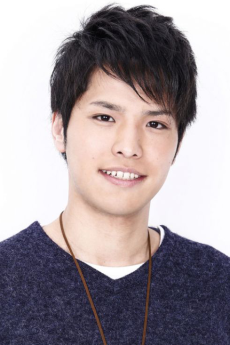
Haruki Ishiya

Mamiko Oumae
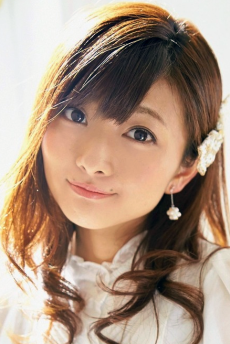
Manami Numakura

Suzume Kamaya
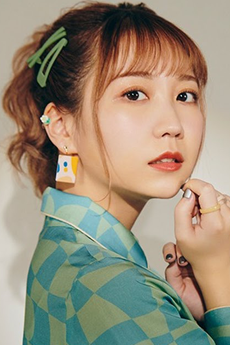
Shiina Natsukawa

Azusa Sasaki
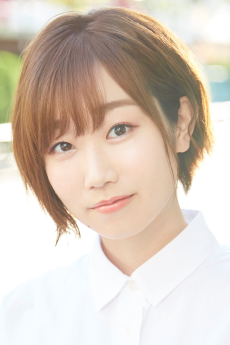
Azusa Tadokoro
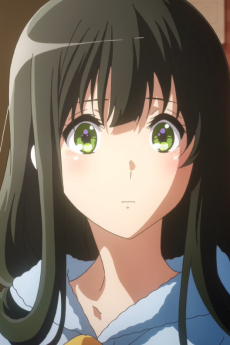
Sari Yoshii
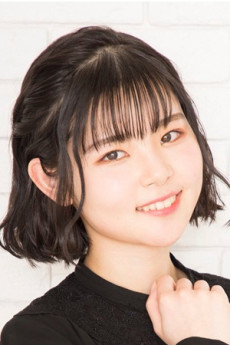
Emiri Suyama

Satsuki Suzuki
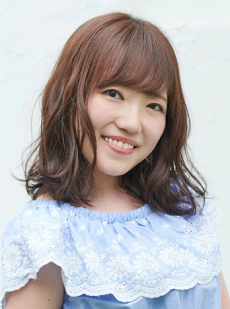
Misaki Kuno
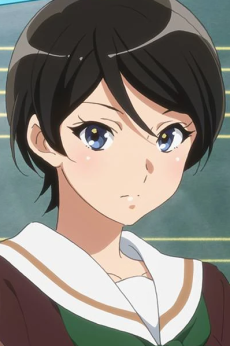
Mirei Suzuki
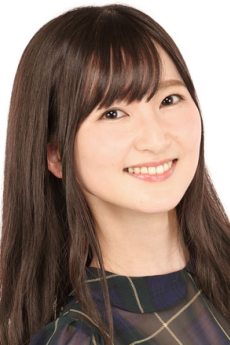
Ayaka Nanase

Satomi Niiyama

Houko Kuwashima

Masahiro Hashimoto
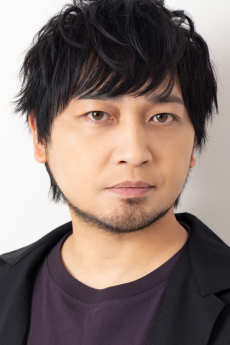
Yuuichi Nakamura
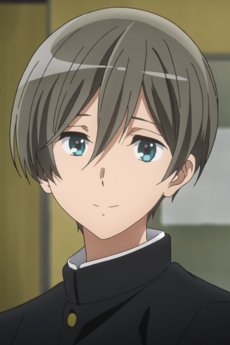
Motomu Tsukinaga
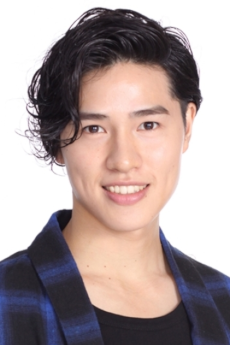
Shinba Tsuchiya

Tsubame Kamaya

Ayaka Oohashi
EPISODES
Dubbed
RELATED TO HIBIKE! EUPHONIUM 3
REVIEWS

Mcsuper
96/100Riveting, inspirational, and a risk-taking work of art.Continue on AniListKyoto Animation, almost without fail, has time and time again showed us the gold standard of anime production. It is clear to see just like many of their shows, it was done with passion, love, and most importantly, they had ample time to work on it. This is the result.
(Be sure to unmute the clip above. The argument that this could be the best season of the series is demonstrated through the brilliant and beautiful direction of the most important scenes) Sound! Euphonium Season 3 is divisive, and it is easy to understand why. KyoAni and the staff made risky decisions in how they adapted the source material, making a critical change towards the end of the season, which really divided the community. Of course, there was also the issue of there not being enough performances in the season, because previous seasons showed the performances, whereas this season did not do the same. The thing I appreciated the most though, was that with all the themes that the season provided throughout, the end result stayed consistent with the themes presented.
Kumiko’s encounter and relationship with the new transfer student, Mayu Kuroe, was no doubt, a turbulent one. Mayu plays the same instrument as Kumiko, and needless to say, there are only so many spots available in a performance, or in the soli. Now, with Kumiko in her third and final year at Kitauji, and with Mayu being the new kid on the block, there is some pressure on who should play and who should not, and while Kitauji has adopted a variety of ways to decide such things, Kumiko, along with vice presidents Reina and Shuuichi, decide that for each performance during the school year, there would be an audition. Managing a band is not an easy job, and Kumiko saw that firsthand. The thing I love about the series is how well it understands school life and music. In a band, there are always clashes of personalities, people who push others harder than they are used to, people who want to just have fun playing with their friends, and people who take winning competitions very seriously. Being the president, you always have to have your ear to the ground on how the band’s morale is, and for the majority of this season, it is not good at all, with the tension at a fever pitch due to the auditions and their results.
The relatability of the characters is another massive reason why I love this series. Kumiko in particular, is someone that I am sure many of us can relate to on some level. She is a graduating high schooler with a very common problem that many of us might have faced before, not knowing what to do after graduation. By being the president of the school band this season though, she learned a lot about how to deal with people, how to motivate people, but most of all, she learned that a lot of the time, you reap what you sow, and that there will always be someone better than you at something, and I’m glad that this theme was hammered home in the end.
As for Mayu, she was also quite relatable, but to many, very frustrating to watch I would imagine. As a transfer student, especially if they are a very capable one, they will very likely shake the morale of the existing group, because all of a sudden, there is someone that plays better than most of the band populace. Therefore, she adopts an attitude of just going with whatever the majority wants, whether it is to play a certain way, to go somewhere together, just whatever would allow her to fit in, to not influence the pre-existing relationships in the band.


(This especially hurt to see, because it is a sign of isolation to the point that she cannot even make a decision on what drink to choose because she thinks it might cause conflict, even though in reality, it is a very trivial matter.) She just needs a hug…
Mayu and Kumiko's interactions throughout this season were tense, and understandably so, because not only do the two play the same instrument, they also had clashing viewpoints toward how Kitauji should operate. Kumiko wanted meritocracy, in that the best players should play, regardless of their status. Mayu, however, did not want to rock the boat that is the band, so it seemed like she wanted to forfeit her role in the band to Kumiko, as that was probably what their bandmates wanted, for their president to play. That is another sign of Mayu’s tragic character, where she just cannot bring herself to affect the band in any substantial way. Kumiko, for a good chunk of this season, avoided her, because it reminded her of herself in the past, the one that Reina “hated” for not caring about the result of a competition.
As controversial as Mayu’s addition to the cast might be, I personally loved her role in the story. She can be seen as an antagonist, but she really isn’t, as she is the catalyst that made Kumiko a better person. Kumiko can lament the missed opportunities to tell Mayu what she really felt about things, but in the end, Kumiko and Mayu helped each other, with Mayu pushing Kumiko to confront conflicts within herself, and Kumiko told Mayu something she needed to hear all her life, which was to play for what she believes in, and not “lie to the performance”.
I also loved Kanade’s role in the story, with her bluntness. In a way, she might have voiced how the viewer was feeling towards a certain moment, and that again, is relatability, in a different light.
Kumiko and Reina’s relationship was also incredibly interesting, and it tackles a similar theme to Kumiko and Mayu’s relationship, which is that people have conflicting opinions. Reina was always one of the best talents that the band had to offer. It created tension in earlier seasons of this series, and it also created tension in this season, with how her and Kumiko’s relationship was. One of Reina’s biggest flaws was trusting Taki as wholeheartedly as she did, leading to a sense of coldness toward members who were unhappy with Taki’s decisions on the auditions. Was she an antagonist? Also no, because these conflicts in a band are natural, because there will always be conflicting philosophies, and when someone as successful as Reina is questioned, it feels like an insult. Again, after being put down by Reina, Kumiko grows for the better, and shows why she was the president, and that Reina was not chosen for such a role, as seen in the eventual success in the band’s subsequent performance.

Even if there are reconciliations to be had, another theme of school life is that friendships can also disappear in the blink of an eye. Reina parting ways with Kumiko is another theme in more ways than one, from the meaning on the surface, to what it means in a musical sense. It reminded me of how Mizore and Nozomi’s relationship in Liz in the Blue Bird, my favourite anime, felt like, with one holding back the other. It is difficult, but sometimes, if you truly love your friend, you also have to let them go, and it is another theme that stayed consistent to the end of the series, which is excellent.
Common arguments about why this series was not living up to people’s expectations included the fact that the performances were for the most part, skipped. That may be the case, but I found the tension in the band just as entertaining, if not more. There were no antagonists in the end, leaving the tension as natural, yet as strong as it can be, which is what the performance was to me, the characters interacting, arguing, and in the end, thriving, under Kumiko’s leadership. The other thing was the pacing, and that one I agree with, as it slightly drags the build up to the pay-off, but made the pay-off happen a bit too quickly at the same time, which is an odd place to be in. There is an argument to be made about that, but to me, I found what we got to be extremely rewarding and inspiring to watch nonetheless. I do wish the second year of Kumiko’s high school career was a full tv season though, that would be the thing to lament about for me.
Overall, this season left me breaking down at some of the tension that was so palpable, and left me in awe of how gorgeous KyoAni’s animation and directing was, possibly even superior to the last two seasons. It’ll be a series that will stay with me for a long time to come, and one that I’ll remember fondly.
Each piece along the way was beautiful. For Kitauji, there will always be a next piece, and for Kumiko, Reina, and everyone else, there will also always be a next piece.
 This is me whenever I talk to that someone called *Hibike! Euphonium*.
This is me whenever I talk to that someone called *Hibike! Euphonium*.
ZNote
95/100The culmination of everything “Hibike!” – a grand finale.Continue on AniList(Video includes audio. Be sure to unmute) From the first episode all the way up through Ensemble Contest-hen, Oumae Kumiko’s journey has been one through reconciling her own feelings and trying to become more self-actualized. It’s been a long road getting from there to here, complete with many frustrations, contradictions, confusions, angsts, and apprehensions both from herself and from others that she is privy to hearing about or experiencing. Back then, she was just a student, mending her old relationship with Kousaka Reina and learning to appreciate just how much her senpai Tanaka Asuka meant to her. Here now, at Hibike! Euphonium season three, she fully assumes the role of her predecessors as the president of that band, taking on a new level of responsibility to the group to propel them to winning the gold at Nationals, the prize that has consistently eluded them.
With a new year and new leadership however comes new rigor—Reina IS an executive now, after all—and with that also comes new urgencies. It’s not just about winning gold; as Kumiko is so reminded by both her family and her teachers (if not also the occasional conversation with classmates), she’s a senior now, waiting on the doorstep of whatever potential and likely-collegiate future might await her, and needing to decide about such things. But not all decisions need to be made straight away; besides, Reina’s dream of performing with Kumiko at Nationals is only getting closer and closer until, of all things, a euphonium sound coursing through the air catches Kumiko’s ear. It’s only a little later that we learn who made the sound: a new girl transferring to Kitauji High School, sporting a navy-blue uniform and a silver euphonium of her own, Kuroe Mayu. Change isn’t on the horizon – it’s right there, as plain as the reflection on Mayu’s euphonium and Kumiko being taken by the sound that comes from it.


(Mayu’s introduction to the season as an unknown, and recurring mirror imagery and conversation employed throughout via Ishihara Tatsuya’s direction, parallels Kumiko’s own preoccupations about what awaits her in the future both as the club’s president and post-graduation) If Hibike! Euphonium season three had anything that it could plant during the interim between Chikai no Finale and the first episode’s lead-up, it was that you could take certain things more or less as a given that they’d occur. The narrative has always followed Kumiko as the point of orientation (with the notable exception of Yamada Naoko’s masterful Liz and the Bluebird), and that much has not changed. But, with her now needing to assume greater responsibilities to the ensemble as a whole, it likewise necessitates a major shift in orienting the view of that ensemble. As a student, Kumiko was a participant in the exercises for marching and listening to Taki’s instructions on how to improve a practice’s performance. But in a position of authority, she must take a more centralized birds-eye view of the ensemble (and we, the audience, likewise follow suit), being the person that others would come to with problems and grievances and be expected to navigate through them.
That shifted perspective regarding the ensemble accompanies a shift in the music’s usage within the season. In-part because of the single cour’s truncation, there are not as many overt “performances” in the course of the thirteen episodes – there are decidedly fewer times that we see the band collectively working together either in practice or in actually performing before the listening audience, and likewise for the viewer. Hibike! Euphonium season three however understands that the performances themselves were never the actual attraction for the series. It’s not that they were outright unimportant or anything of the sort, but rather that they were not the point. The melodrama of the season serves as the ensemble’s true performance, allowing both discordant countermelodies and high emotion to come through as complements to the tone rather than the showboating they might have been otherwise. All of this is realized through its masterful visual-acoustic storytelling and episode directing from some of Kyoto Animation’s most important figures like Kitanohara Noriyuki, or newcomer to the directorial side Miyagi Ryou, who began their career on Hibike! Euphonium season one and now gets to take a driver’s seat role for its final act.
(First clip includes audio. Be sure to unmute. Unknown credit for both clips. Kumiko’s new position as the president of the band likewise repositions the presence of music in the series – there is less “performing” directly and more an attempt to integrate in-universe music into the tone of the season rather than as events themselves) But Mayu is the final, and arguably most important, ingredient to this general reorientation. Her euphonium playing and coming from a previous school known for its prestigious music program brings its own problems into the fore. Mayu heralds that Kumiko’s place as the “one true eupho” is on far shakier ground than she might have anticipated. It’s not just because she’s good, but rather also due to Mayu’s general demeanor of friendliness and wanting to not rock the boat clashing with the inherent approach that Kumiko has in mind. The prior experiences with the trumpet solo audition from freshman year and Kanade from junior year were signs of needed changes. Those changes manifested in the form of Kumiko and Reina working to make Kitauji’s band a place where, regardless of one’s status as an upperclassman or underclassman, the best performances reign and have the privilege to perform at the competition. It’s a doctrine that reads as the ensemble’s credo, and one that Kumiko especially believes is best for everyone.



(If Kitauji’s meritocracy is to yield results, it must by necessity run counter to the idea of everything going swimmingly and people’s feelings not being hurt. Kumiko’s attempts to assuage worries and keep the ensemble from having members drop out is one of her chief tasks as president) Mayu’s behavior thus makes for a rather ironic response to Kumiko’s own perception of Kitauji’s meritocracy. The entire notion of competing in Nationals means, in-part by virtue of how audition processes work and having only a finite number of players allowed, that not everyone can be satisfied or be having fun. Mayu’s reticence to replace anyone expressed early in the season serves as a challenge to that meritocracy ideology, questioning its legitimacy and whether everyone sincerely feels that way, and her continued insistence provides a point of consternation for Kumiko who just can’t realize how to respond to this peculiar obstinacy. It’s not that Mayu doesn’t want to win gold at Nationals, because she does – otherwise, she’d never have voted to do so. Yet, it’s a heightened form of Kumiko’s own desire to not have anyone drop out that she’s essentially confronting, a reflection of the passive version of herself from previous seasons that she thought she had moved beyond, but now has to confront from a new angle. Confronting Mayu’s insecurity means confronting Kumiko’s insecurity, creating one of the major thematic threads for the season.
Mayu and Kumiko’s perspectives are thus each chasing a metaphorical rainbow that run parallel; they may be headed in the same general direction, but they can’t cross. Because of this fundamental inability to see eye-to-eye, they cannot connect as easily. Mayu’s apprehension is just as despairingly resolute as Kumiko’s belief that what she herself believes in is the truth of how she honestly feels. Yet as each episode progresses and we see that perhaps Mayu’s apprehension seems all-the-more to be coming true, it gives dialogue and entire sequences a particular weightiness to each word and interaction. Emotions run higher and tensions run thicker not just because the stakes have increased for the main cast with increased auditions and graduation drawing nearer, but rather because the ensemble collectively is carrying this sort of held breath every time, with confidence wavering in confusion. I mentioned before that the melodrama within the band is the true performance of the season, and it subsequently manifests in inner-band friction both collectively and between individual members that is true Hibike! Euphonium spirit.




(Mayu’s reluctance to perform if it means someone else loses a spot in the ensemble is a double-edged foreshadow – it hints not only at why she has this outlook to begin with, but also reflects the attitude that will actively clash with both Kitauji’s meritocracy policy and Kumiko’s own self-reckoning) And that spirit of conflict always has its inverse; that of optimism and understanding. Between Kumiko’s presidency, Mayu’s apprehension, Reina’s perfectionism, the new freshmen, Tsukamoto providing insights of his own, Kanade’s own rounding out of her edges, and everything else, Hibike! Euphonium season three is juggling a lot of ideas within its thirteen episodes. It would be easy to assume that it would crumble under the weight of it all, yet like magic, it doesn’t. The endgame for the season is more or less a surefire conclusion, but the route it takes to get there walks the twilight between crushing and soaring (even if it might change entire details of the original source material to achieve that). No matter how much it may pull out some brutal pathos punches or moments of sheer deflation, it never tries to leave its characters out in the cold forever; there will always be something to pull them back from the precipice.
That may just be its most optimistic message of all for its audience, and one that the series has been comfortingly saying since the very beginning with that flashback that started it all – there will be hardships and times when you have to come face-to-face with your own disappointment, inability, or uncertainty. Sometimes, it may seem cruelly unfair, or you may feel like you’ve taken two steps back for every one step forward. But underneath it all lies the tenderness of love and friendship, bonds worth holding onto no matter how late they may have been forged. If this is indeed likely to be the final installment of this franchise (I imagine Kyoto Animation would want to move on to other properties to develop and see what lay within their imagination), then it could not have chosen a better way to finish. Its characters left Kitauji High School better than when they came in. They bettered themselves not just musically, but personally.
That’s the true finale that the series had been building to since the beginning. All the desires to improve, all the tears, all the notes, all the drama, all the smiles, and all the goodbyes – season three is the culmination of everything Hibike! in the end.


(Video includes audio. Be sure to unmute. No matter what sadness or difficulties the year may bring, the feelings left behind for the characters are always optimism for the future and a reaffirmation of love and friendship)
To you, the reader - let YOUR next piece begin. 
melamuna
95/100A somber yet assuring finale season of an anime that conceals deep sorrow and happiness in smiles and soothing melodiesContinue on AniList
__Part 1 Dichotomy of Wants__
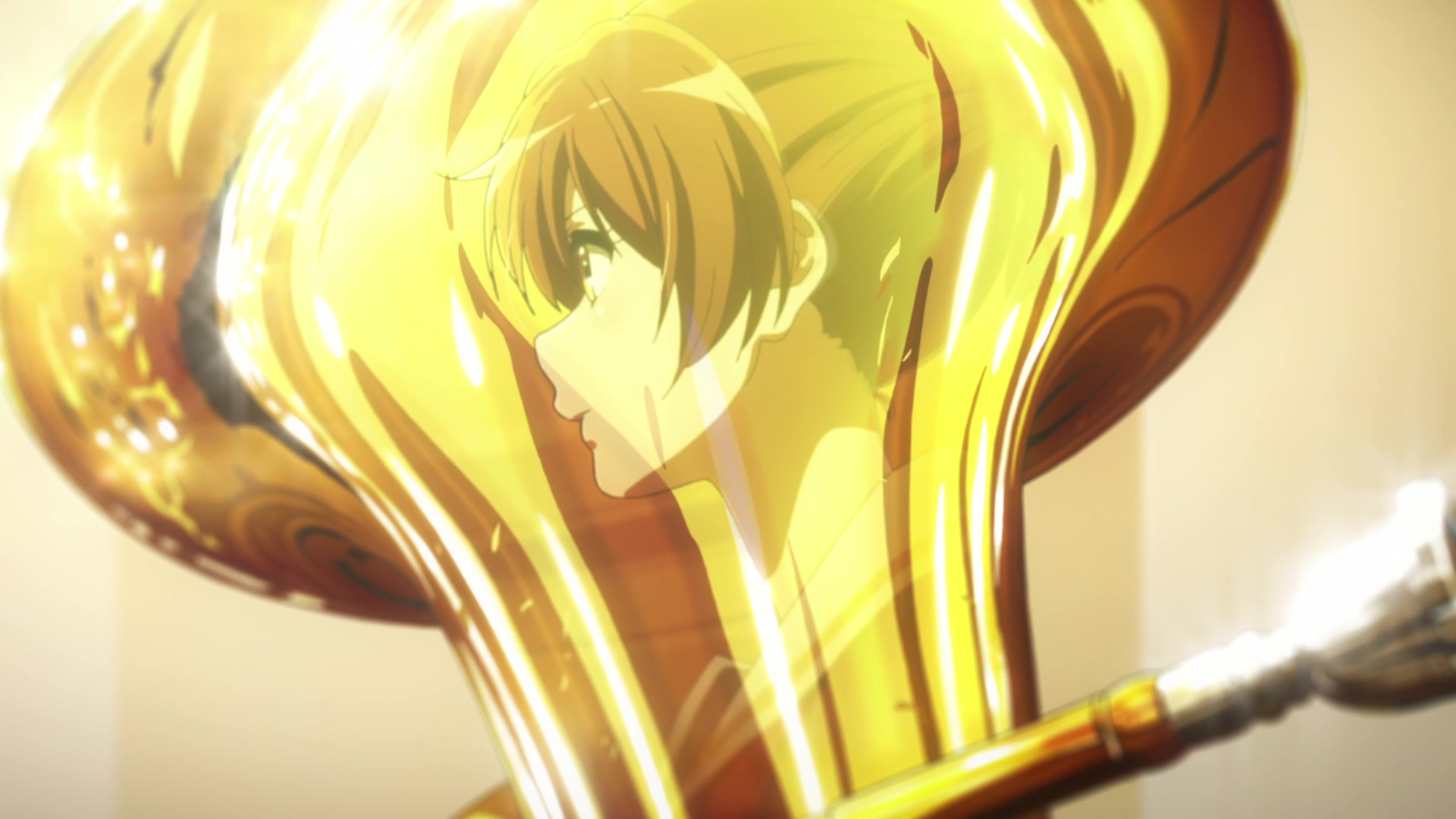
Reality is often disappointing
Every day you follow a routine of eat, sleep, go to school, meet friends, learn what you gotta learn, hang out, appreciate the sunset as you walk home, kill off some time at home, sleep, and repeat. The life of an adolescent is in the middle of seeking wonder through the mundanity, but at the same time restricted by their youthful ignorance. The dreams we have that we couldn't reach, some may be devastated, and some may have avoided performing altogether in fear of failure, but if you set yourself in the shoes of Kumiko Oumae (Tomoyo Kurosawa) in Sound! Euphonium, where you are in the middle of “I'm not good enough” and “I gotta be better."
A dichotomous fine line exists between being sure of what one person wants while being aware that you can't really reach what you dream of. Kumiko is the type of character that in the first few episodes you couldn't really get into because of how much she distances herself from other characters and just lets things play out, but she has her hands out for them and guides where the characters in the series want to go—for the sake of their happiness.
The more you keep your distance from the core instrument you play, the more you feel dissatisfied with the performance you give. But at the same time, the more you push yourself hard to get away from the mundanity, it often makes you disappointed when you cannot attain the achievement you want. It's not just Kumiko who experiences these dichotomies, but the majority of the characters in Sound! Euphonium does in its own way.
Some have persevered through the rough and have shined more than a diamond, but that's not real life. When one shines, the others fall, and no matter how much you've practiced and exerted efforts at your best, reality often reminds you that there is someone who is better than you, while you tell yourself that it's better to just step down because that high position you seek is just not for you, and most of them do step down. Most of them have already left the path, and now it's your time to leave.
But this is what you want
Even after the defeat, the chances of you coming back are slim, but with sheer determination, you are the main benefactor to leave the mundanity of life that you refused to go back to. You keep doing your best, and eventually you will level with the rest. Sound! Euphonium shows the harshness of reality where life can easily drag you down, especially when you are unsure with the passion that you're holding dear. Sometimes, it is okay to not push further if it's something that you don't want, and it's okay to lose sometimes. As a cautionary tale for these characters and for you, don't hold things against you for failing when the chances of another try is always available for you. ***
__Part 2 A Frustrating Melody__
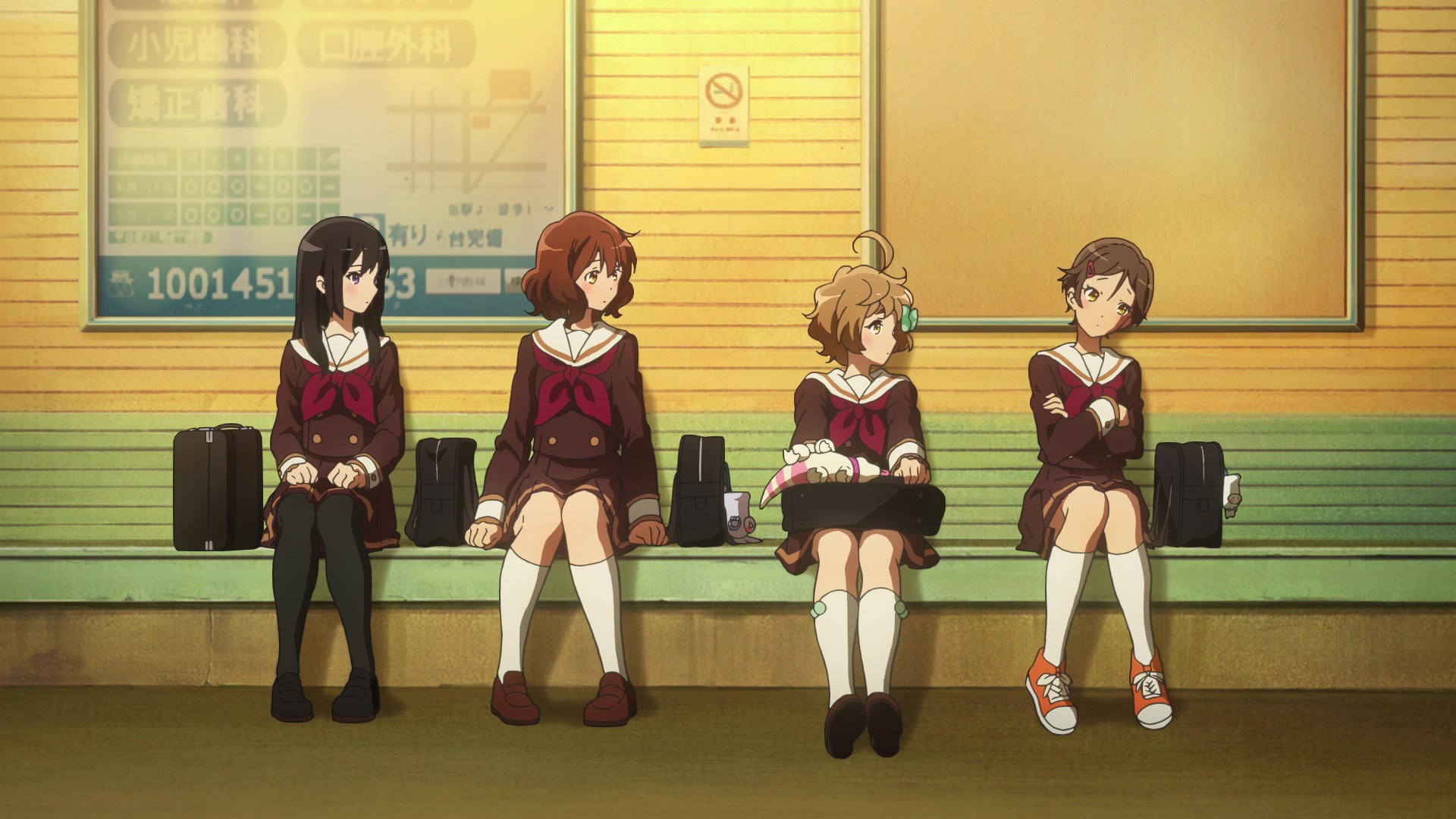
One of the main selling points of the series is its use of a high school orchestra as the main theme. The series does tackle the technicalities of the creation of music, translating sheets of music to a beautiful melody, and working together as a team to ensemble a magnificent and calming piece. This is greatly highlighted by Kyoto Animation’s high standards, keeping attention to minute details from the animation to the instruments hitting real notes from the drawings and the real-life note. However, the show does not mainly focus on the technicalities of the instruments and the creation of music but on the social aspects and group dynamics of music creation.
Through the calmness and beauty of a soothing melody, behind it, there's weeks of exhausting practice between people who exert too much energy that leads them to be exhausted and impulsive and the people who have exceeded their limit but still not enough for the standards of the piece. The group dynamics of an ensemble can often shatter down when one little mistake catalyzes into a greater problem, and the series shows this realistic portrayal that's stress-inducing and utterly realistic. I, as a viewer, recall memories of group-centric events and the messy, uncooperative corporation that you just want to escape for the sake of your sanity but remain inside the chaos because of guilt, obligation, or perseverance of one's wants.
Sound! Euphonium offers a realistic take on the dynamics of characters, offering realistically disturbing yet relatable, well-written characters from the main characters, side characters, and even background characters. This aspect of the show feels like a place you don't want to go back to because of your own personal experience in this environment, but you are intrigued by the portrayal. ***
__Part 3 Season 3__

After underwhelming OVAs and movie sequences, the series finally got its proper third season with a new stake in our characters' lives. For the past 2 years in the band, Kumiko Oumae has experienced the highest and lowest moments inside the band. Now that she's in her third year as club president, she must endure the challenges that lie ahead of her. From the introduction of the freshman and their struggles, and facing familiar incidents she experienced during her first year popping up once again in her last year in the club, This is her last year as an ensemble, and the club decided to aim for gold. This redemption arc is where the series gives it all and delivers each sequence in a quiet yet powerful manner, speaking with Kyoto Animation’s signature silky and subtle animation and Tatsuya lIshihara’s brilliant and engaging direction.
Unlike the first two seasons, Oumae takes center stage for being a proactive member of the club, as well as putting center stage on the external and internal struggles inside the club with her role as the club president. Moreover, the series greatly explores Oumae’s inner struggles outside the club. As the end of her high school life approaches, she's been faced with the slap of reality of transitioning to the next education that decides her future. However, she's once again at a dilemma about the career she chooses next, as she is not sure of herself which one fits best for her while at the same time not repeating the mistakes she experienced prior to her third year. Oumae’s journey is subtle and relatable for all of us, and you are sold on her as the main character we follow throughout the series.
The third season highlights the relationship between Kumiko Oumae and Reina Kousaka (Chika Anzai). These characters are the face of the series, and they have truly outgrown each other in terms of emotional reasons since we saw them in the first season. Their character dynamic is far closer, and you can feel the weight on screen that they've definitely witnessed and traversed many obstacles with each other. There are also little moments from the side characters, such as Hazuki Katou (Ayaka Asai), that really elevate the atmosphere and realism of the series. Mayu Kuroe (Haruka Tomatsu) is a good new addition to the ensemble, and her role in the series reflects the past moments in the ensemble. Other characters fit their roles and play them well. ***
__Conclusion__
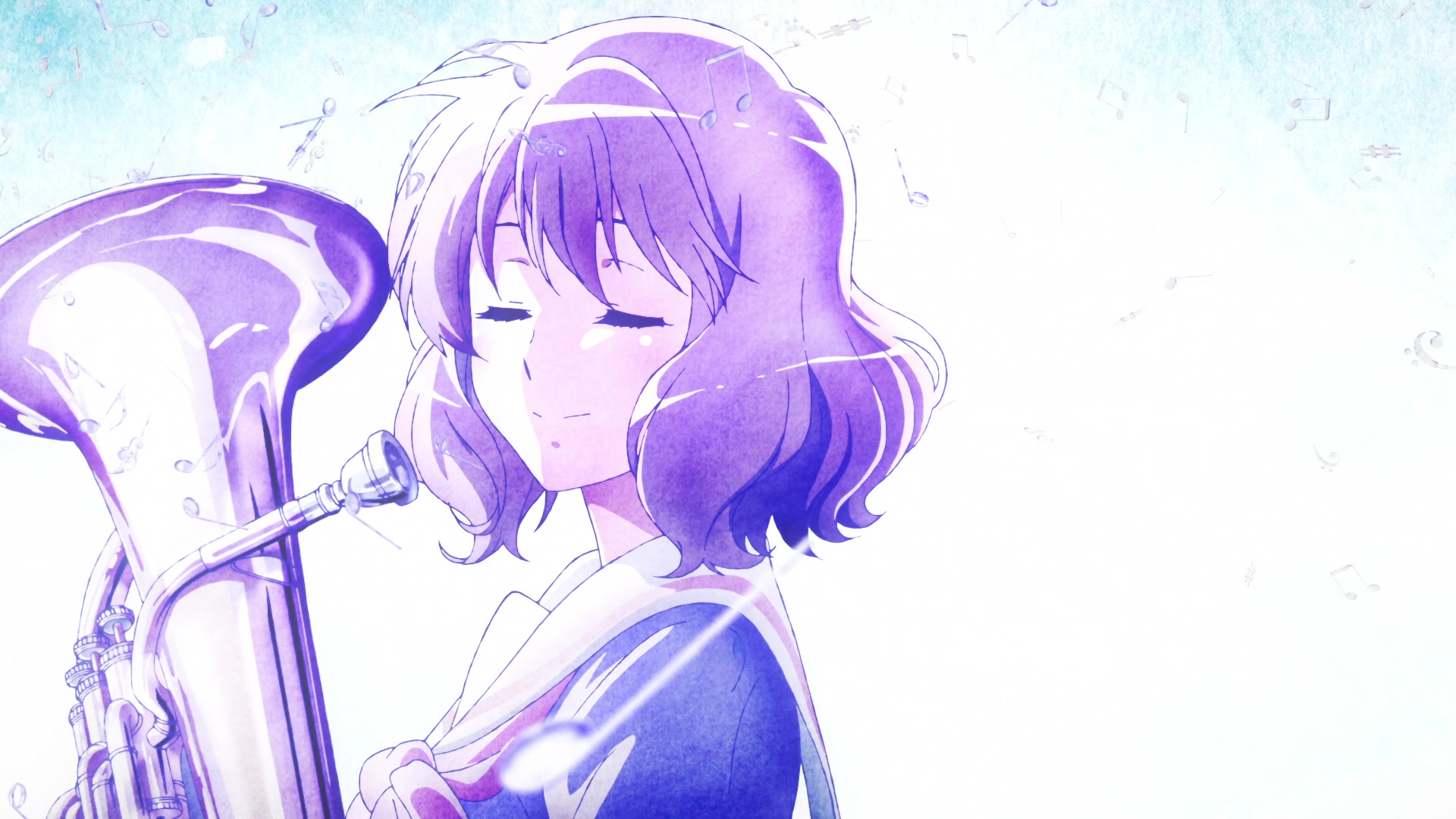
Despite the somber moments of the series, it does pick itself up and inspires us to walk through with our wants and persevere through the challenges that lie ahead of us. The lighthearted moments of the series serve as a way to connect with these characters in their most relaxed manner rather than the tense environment during practices, which works wonderfully in the show. The long-deserved wait for the third season of Sound! Euphonium steps in and satisfies both long-running fans and the narrative of the entire series.
Sound! Euphonium is some of the most realistic anime out there, tackling realistic issues with deeply humanizing adolescent characters and an accurate portrayal of music and the stress behind the notes of a beautiful piece. Added cherry on top with Kyoto Animation’s signature animation style and attention to minute detail. This anime might not have the same attention given as other anime shows, but it will eventually earn its spot as a timeless cult classic. ***
SIMILAR ANIMES YOU MAY LIKE
 ANIME ComedyYuru Camp△ SEASON 3
ANIME ComedyYuru Camp△ SEASON 3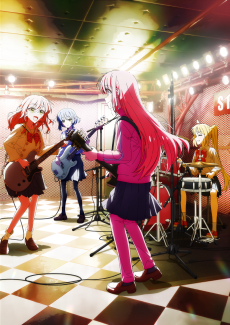 ANIME ComedyBocchi the Rock!
ANIME ComedyBocchi the Rock! OVA ComedyK-ON!: Live House!
OVA ComedyK-ON!: Live House! MOVIE ComedyK-ON! Movie
MOVIE ComedyK-ON! Movie OVA ComedyK-ON!!: Keikaku!
OVA ComedyK-ON!!: Keikaku! ANIME ComedyBanG Dream!
ANIME ComedyBanG Dream! ANIME ComedyBanG Dream! 3rd Season
ANIME ComedyBanG Dream! 3rd Season
SCORE
- (4.35/5)
TRAILER
MORE INFO
Ended inJune 30, 2024
Main Studio Kyoto Animation
Trending Level 1
Favorited by 1,525 Users
Hashtag #ANIME_EUPHO







